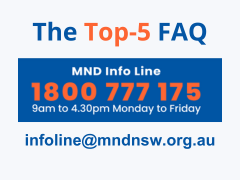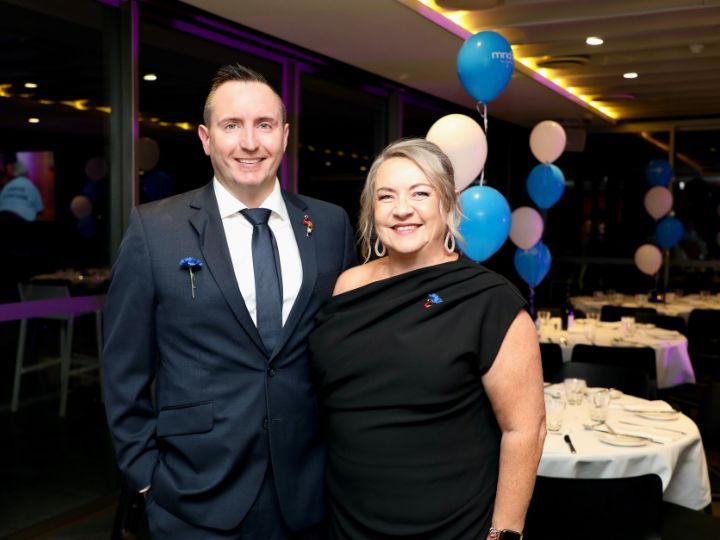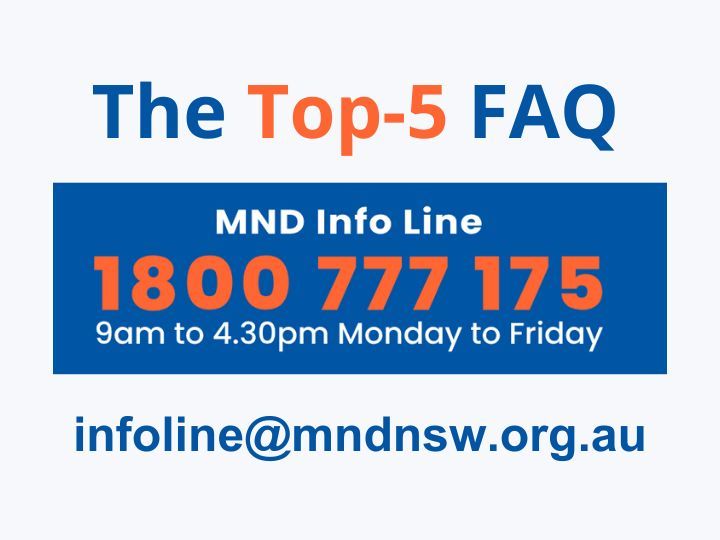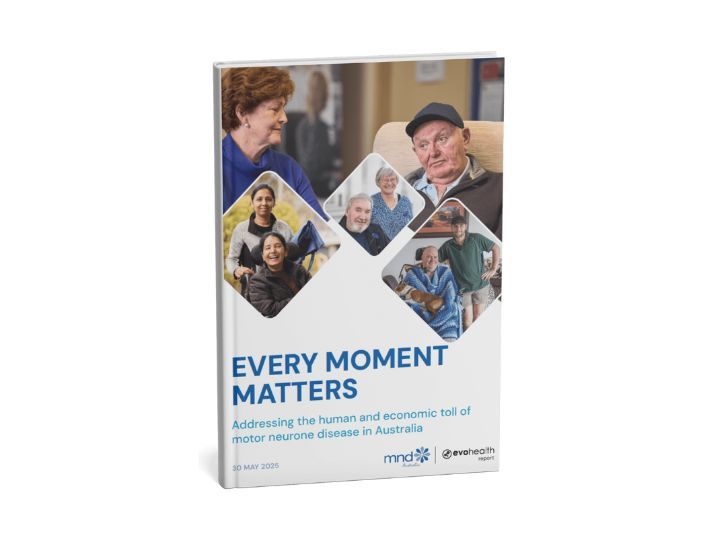It has been a busy start to the New Year with the MND NSW Info Line responding to 85 enquiries in January. Below are the Top-5 frequently asked questions we have been asked by MND community members.
1. Are there Support Groups for people with MND?
Yes, support groups are available in-person across NSW and the ACT. Some groups are also available online. Support Groups are an informal get-together where you can share your experience of living with MND. They are open to people living with MND and a family or friend who is caring for someone living with MND.
To find your local support group visit the Support Groups page of our website.
2. What kind of assistive technology may be required for people with MND?
Assistive technology (AT) can assist people living with MND to:
- Mobilise
- Communicate
- Eat and drink
- Shower and toilet
- For safety and for comfort.
AT that may be used include:
- Wheelchairs
- Hoists
- Rails and ramps
- Electric beds
- Armchairs
- Pressure care
- Communication Devices.
For further information visit:
3. Where can I access equipment?
Equipment can be accessed from a range of various places. It can be hired through FlexEquip which is a service of MND NSW. FlexEquip provides equipment to people who access the NDIS as well as for those who are over the age of 65. It is a high quality equipment loan pool developed specifically for people with MND.
NDIS participants can access FlexEquip through their NDIS plan, while those diagnosed with MND and ineligible for the NDIS are provided equipment fully subsidised by MND NSW.
4. What education is available for health professionals?
We provide a range of educational opportunities for health professionals.
MND Upskill
A new initiative which is a full day and in-person education session exploring the complex nature of MND and MND symptom management. It provides the opportunity to apply professional experience during workshop exercises and attendees can have the chance to explore several types of Alternative Augmentative Communication (AAC) available from FlexEquip during practical demonstrations.
MND Aware
MND Aware is an online course that is available on the MND Hub. It is a comprehensive course about MND.
The course is suitable for all types of learners and has been developed for:
- Community, home care, disability, and aged care workers
- Intake and referral staff
- Carer coordinators and case managers
- Health, allied health, and palliative care professionals
- Volunteers, pastoral care workers.
MND In-Service
Delivered by a MND Advisor in-person or via MS Teams. This is available to any organisation who is supporting a person with MND and is accessing our Advisor program. This session provides information about MND, symptoms and symptom management strategies.
For further information visit about our education offering and links to register visit the Education and Info Sessions page of our website.
5. What is involved in the process of diagnosing MND?
Diagnosing MND is a meticulous process which involves several steps. It usually involves consultation with a general practitioner who will provide a referral to a neurologist. Diagnosing MND is a process of eliminating other diseases which may present similarly to MND and can result in a lengthy diagnosing process. Tests which may be involved include-
- Nerve Conduction Studies
- Electromyography
- Lumbar Puncture
- Muscle Biopsy
- MRI Scans
- Blood Tests.
For further information visit What is MND? (mndnsw.org.au) which includes information on diagnosis.
Ask us a question!
Get in touch with us via 1800 777 175 or
Your question might be in our next month’s Top-5!




